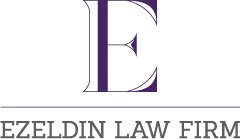Best Landlord & Tenant Lawyers in Illinois
Share your needs with us, get contacted by law firms.
Free. Takes 2 min.
Free Guide to Hiring a Real Estate Lawyer
Or refine your search by selecting a city:
List of the best lawyers in Illinois, United States
United States Landlord & Tenant Legal Questions answered by Lawyers
Browse our 2 legal questions about Landlord & Tenant in United States and read the lawyer answers, or ask your own questions for free.
- What is owner of condo units obligation as far as damage to the condo below their unit.
- The unit above my condo is managed by a Property Management company, and it was rented. During the time it was rented, there were water leaks that damaged my ceilings, and the Management Company. refuses to fix the ceiling so that it matches the rest of the ceiling. Even though... Read more →
-
Lawyer answer by Horus Legal Sulotion
Thank you for sharing the details of your situation. Based on the circumstances you described, you may have grounds to escalate the matter legally. You can file a case to request the appointment of a government engineer from Dubai Municipality...
Read full answer - How to protect property from squatters law
- Deed in my mom's name. She died 18 years ago. Son is named as administrator but not as owner. We live in USA so let Non relative live there for 45-50 year but had no formal contract. Let him live there free as long as he paid utilities and taxes.... Read more →
-
Lawyer answer by M BILAL ADVOCATES, CORPORATE & TAX CONSULTANTS
After completing probate to establish yourself as the legal heir, you can transfer the property title to your name and then grant them permission to reside there through a formal agreement. It is worthy to note that you can do...
Read full answer
About Landlord & Tenant Law in Illinois, United States
The landlord and tenant relationship in Illinois is governed by a combination of state statutes, local ordinances, and federal regulations. These laws cover all aspects of renting, including leases, security deposits, eviction procedures, repairs, and more. Whether you are a landlord seeking to manage rental properties or a tenant looking to protect your rights, understanding the basics of Illinois landlord-tenant law can help prevent disputes and ensure a smoother rental experience.
Why You May Need a Lawyer
Landlord and tenant issues can escalate quickly, sometimes leading to complex legal disputes. Here are some common situations where legal assistance may be needed:
- Eviction proceedings, either filing or defending against an eviction
- Disputes regarding security deposit returns or deductions
- Lease agreement disputes, renewals, or early terminations
- Concerns over habitability and repairs not being made by the landlord
- Allegations of discriminatory practices in renting or leasing
- Unlawful entry or privacy violations by landlords
- Retaliatory actions after a tenant exercises legal rights
- Issues related to subletting or assigning a lease
- Disputes over rent arrears or increases
- Complicated situations involving subsidized or government-assisted housing
In any of these scenarios, a lawyer can help clarify your rights and obligations, represent you in negotiations or court, and help you reach a fair resolution.
Local Laws Overview
Illinois has several unique laws and protections for both landlords and tenants. Major cities, such as Chicago and Evanston, also have their own regulations, so local ordinances may apply in addition to state law. The following are key aspects of landlord-tenant law in Illinois:
- Security Deposits: State law limits when and how much can be withheld from a security deposit. In Chicago, landlords must pay interest on security deposits and return them within strict timeframes after a lease ends.
- Eviction Process: Landlords must follow a detailed legal process to evict tenants, including providing proper notice. Self-help evictions, such as changing locks, are illegal.
- Repairs and Maintenance: Illinois landlords must keep rental properties habitable and comply with health and safety codes. Tenants may have the right to repair and deduct if urgent repairs are not addressed.
- Rental Agreements: Written leases are preferred but not always required. Oral agreements are enforceable in some situations.
- Notice Requirements: There are specific notice periods for raising rent, terminating leases, or addressing lease violations.
- Discrimination: Both federal laws and the Illinois Human Rights Act protect tenants from discrimination based on race, religion, sex, disability, and other factors.
Frequently Asked Questions
Do I need a written lease agreement in Illinois?
No, but it is strongly recommended. Oral lease agreements are legal for leases less than one year, but written agreements provide better protection for both parties.
How much can my landlord charge for a security deposit?
There is no state-wide limit on the security deposit amount, but many local laws, such as the Chicago Residential Landlord and Tenant Ordinance (RLTO), regulate how deposits are handled and when they must be returned.
How much notice must my landlord give before evicting me?
It depends on the reason for eviction. For non-payment of rent, landlords must usually give a five-day written notice. For other lease violations or no-cause terminations, other notice periods apply.
What are my rights if my landlord does not make necessary repairs?
Tenants may be able to repair the problem themselves and deduct the cost from the rent, or even terminate the lease, but certain procedures must be followed. It is important to provide written notice and keep records.
Can my landlord raise the rent at any time?
Landlords can raise the rent when a lease expires or, in a month-to-month tenancy, with proper written notice (usually 30 days). Local laws may provide additional restrictions.
Is my landlord allowed to enter my apartment without notice?
Landlords must usually provide at least two days’ notice before entering a rental unit, except in emergencies. Terms may vary depending on the lease and local laws.
What can I do if I am being discriminated against?
You may file a complaint with the Illinois Department of Human Rights or the U.S. Department of Housing and Urban Development. Discrimination based on protected characteristics is illegal.
How soon must my landlord return my security deposit?
In Illinois, if there are no deductions, the deposit must be returned within 45 days after the lease ends. Deductions must be itemized and provided in writing within 30 days.
Can I withhold rent if my landlord fails to make repairs?
This is possible in limited circumstances, but tenants must follow specific steps. Consult an attorney or local tenant organization before withholding rent.
What should I do if I am served with an eviction notice?
Do not ignore it. Review the notice carefully, contact a lawyer or legal aid organization, and consider attending any court dates. You may have defenses or remedies depending on your situation.
Additional Resources
If you need more information or legal help, consider reaching out to these organizations in Illinois:
- Illinois Legal Aid Online
- Illinois Attorney General’s Office - Consumer Protection Division
- Chicago Department of Housing
- Metropolitan Tenants Organization
- Illinois Department of Human Rights
- Local bar associations for lawyer referrals
These resources can offer free or low-cost legal advice, referrals, pamphlets, and additional information about your rights and obligations as a tenant or landlord.
Next Steps
If you believe you have a landlord-tenant issue that requires legal advice, start by gathering all relevant documents such as your lease, correspondence with your landlord or tenant, and any notices received or sent. Reach out to one of the resources listed above for information or a referral. Schedule a consultation with a qualified Illinois attorney who specializes in landlord-tenant law to discuss your rights and options. Acting quickly can help prevent the problem from getting worse and protect your interests under Illinois law.
Lawzana helps you find the best lawyers and law firms in Illinois through a curated and pre-screened list of qualified legal professionals. Our platform offers rankings and detailed profiles of attorneys and law firms, allowing you to compare based on practice areas, including Landlord & Tenant, experience, and client feedback.
Each profile includes a description of the firm's areas of practice, client reviews, team members and partners, year of establishment, spoken languages, office locations, contact information, social media presence, and any published articles or resources. Most firms on our platform speak English and are experienced in both local and international legal matters.
Get a quote from top-rated law firms in Illinois, United States — quickly, securely, and without unnecessary hassle.
Disclaimer:
The information provided on this page is for general informational purposes only and does not constitute legal advice. While we strive to ensure the accuracy and relevance of the content, legal information may change over time, and interpretations of the law can vary. You should always consult with a qualified legal professional for advice specific to your situation.
We disclaim all liability for actions taken or not taken based on the content of this page. If you believe any information is incorrect or outdated, please contact us, and we will review and update it where appropriate.
Browse landlord & tenant law firms by city in Illinois
Refine your search by selecting a city.

















